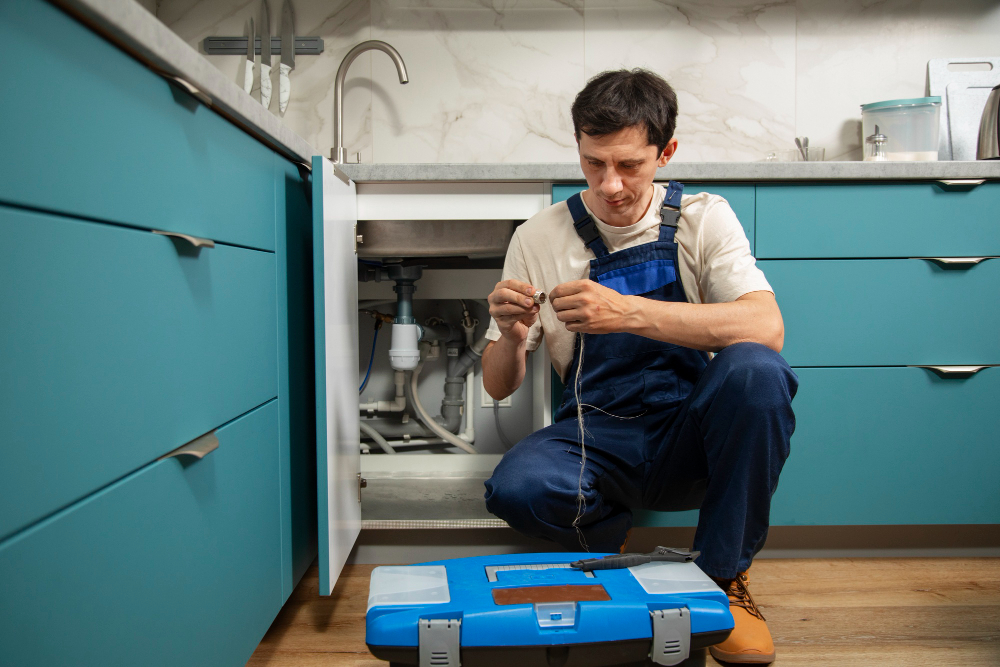Blocked drains are among the most common household plumbing issues, affecting millions of homes each year. These blockages can disrupt daily life, turning simple activities like washing dishes or taking a shower into frustrating tasks. The implications of blocked drains extend beyond mere inconvenience, posing significant threats to the integrity and functionality of home plumbing systems.
Understanding the immediate and long-term impacts of these blockages is crucial for homeowners. It’s not just about the inconvenience of waiting for water to slowly drain away; it’s about recognizing the potential for serious plumbing damage and health risks that can arise if these issues are not addressed promptly and effectively.
Immediate Effects of Blocked DrainsWater Backup and Overflow
One of the most noticeable signs of a blocked drain is water backing up out of a sink, bathtub, or shower drain. This can lead to overflows, causing water damage to floors, walls, and fixtures. The immediate aftermath of such blockages is not only messy but can also be costly to clean up and repair, especially if the overflow affects electrical systems or leads to the growth of mold.
Slow Drainage
Partial blockages in your plumbing system can significantly reduce the rate at which water drains away. This slow drainage is often the first sign of a problem, indicating that debris has started to accumulate within the pipes. Sinks filling up faster than they drain and water pooling around your feet in the shower are common symptoms. Over time, what starts as a minor annoyance can escalate into a full blockage if not addressed.
Unpleasant Odors
Blocked drains often emit foul odors, a result of food particles, grease, and other organic matter decaying in standing water within the pipes. These smells are not only unpleasant but can also permeate throughout the house, affecting the overall comfort and living conditions. The presence of such odors is a clear indication that a blockage is forming, requiring immediate attention to prevent further issues.
Long-term Consequences of Untreated BlockagesPipe Damage
The pressure buildup from sustained blockages can stress pipes, leading to cracks, leaks, or even bursts. These structural damages to your plumbing system can be far more severe and expensive to repair than the initial blockage. In extreme cases, water leakage from damaged pipes can undermine the structural integrity of walls and floors, leading to even more extensive repairs.
Health Risks
Untreated blockages can create health hazards over time. Stagnant water in blocked pipes is a breeding ground for bacteria and mold. Exposure to these can lead to respiratory problems and other health issues, especially for individuals with allergies or weakened immune systems. Ensuring drains are clear and water flows freely is vital for maintaining a healthy home environment.
Increased Repair Costs
Ignoring the early signs of a blocked drain can lead to significant financial implications. What might have been a simple fix can escalate into a need for major plumbing repairs or even the replacement of sections of your plumbing system. Proactively addressing blockages can prevent these costly outcomes, saving homeowners considerable expense and inconvenience in the long run.
Preventative Measures to Avoid Blocked Drains
Prevention is key to maintaining a healthy plumbing system and avoiding the hassles and costs associated with blocked drains. By adopting a proactive approach, homeowners can significantly reduce the risk of blockages.
Regular Cleaning and Maintenance
Routine drain cleaning and maintenance checks play a pivotal role in preventing blockages. Simple habits like weekly flushing drains with hot water can help dissolve minor build-ups of soap scum and grease. For more thorough cleaning, a mixture of baking soda and vinegar can break down debris without the harsh effects of chemical cleaners. Additionally, annual professional inspections can identify and rectify potential issues before they escalate into major blockages.
Mindful Usage
Being mindful of what goes down your drains is crucial for preventing blockages:
· Avoid Grease and Oils: Never pour grease, oil, or fatty substances down the drain, as they solidify in pipes and create clogs
· Food Waste: Keep food scraps, coffee grounds, and other solids out of the sink. Use a compost bin where possible.
· Hair and Soap: Use drain guards in showers and bathtubs to catch hair and soap pieces, preventing them from entering the drainage system.
When to Seek Professional Help
Even with the best preventive measures, some blockages can be inevitable or too severe for DIY solutions.
Recognizing the Signs
Knowing when to call a professional is crucial. If multiple drains are affected, water backs up in places it shouldn’t, or DIY methods fail to clear the blockage, it’s time to seek professional help. Persistent bad odors and slow drainage despite repeated attempts at clearing can also indicate a need for expert intervention.
Benefits of Professional Assessment
Professional plumbers offer more than just unclogging services. They provide comprehensive assessments that can identify underlying issues within your plumbing system, such as tree root intrusions or damaged pipes, which aren’t always apparent. This thorough evaluation helps prevent future blockages and potential plumbing emergencies, saving homeowners time and money in the long run.
Conclusion
Blocked drains are a common issue that can lead to a range of problems, from minor inconveniences to significant plumbing emergencies. The key to managing this challenge lies in prevention through regular maintenance and mindful usage of your plumbing system. However, when faced with stubborn or recurrent blockages, seeking professional help is not just advisable; it’s necessary.







